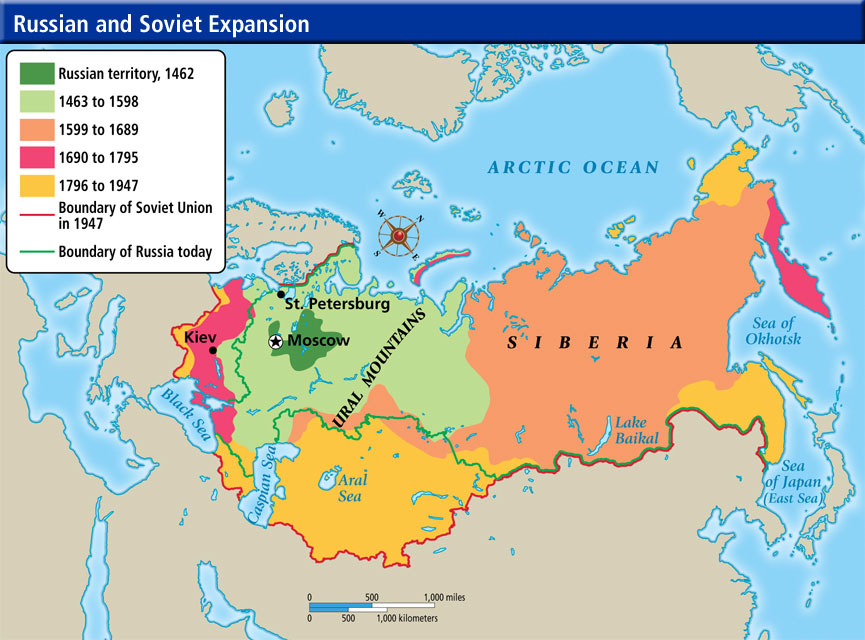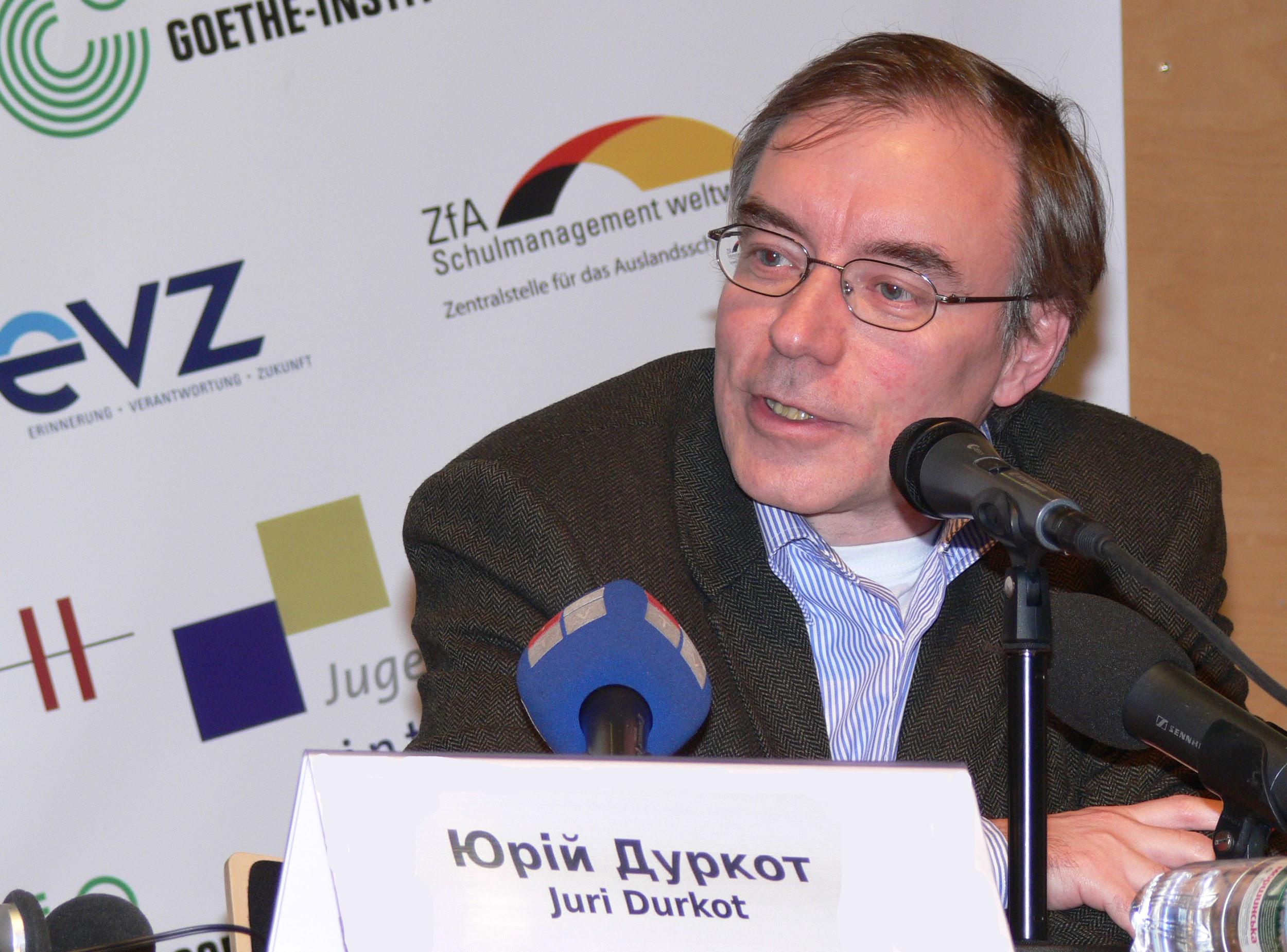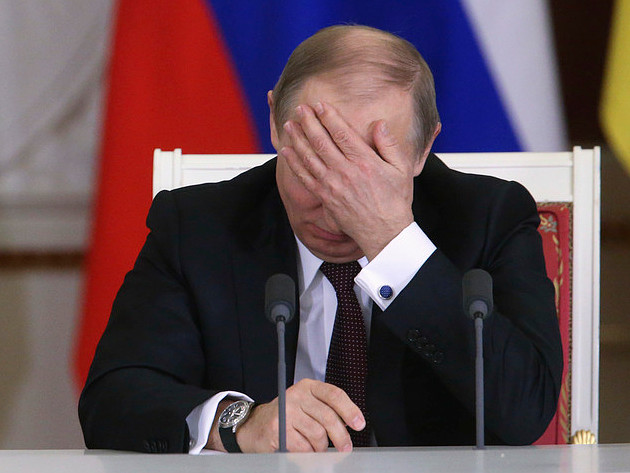Russia is not condemned to follow its current path of confrontation and economic decline.
Its current social and economic weakness is not the result of a historic determinism or an external threat that are out of Russia’s control. Its leadership and people can choose alternative paths with better outcomes.
However, making the right choices will require understanding how the limits of Russian expansion affect its economic opportunities. In part, Russia’s current weakness is the result of just plain bad decision making by past and current Russian leaders. The collapse of the Soviet Union was the result of poor choices by the Soviet leadership and a failure to adapt to new circumstances, just as today’s economic difficulties are the direct result of poor choices Putin and his clique are making. Arguably, that is a problem that can be addressed.
However, the principal reason for Russia’s weakness is that, after three centuries of an extraordinary expansion in territory, Russia has exhausted the economic potential from expansion. The problem begins with Russia’s current leadership, which cannot shake its self-image as a global power based on the model of a vast Soviet Union that they knew from their childhoods.
Most damaging is their continued belief in Russia as an expansionist power. The fixation on expansion and a larger, exclusive sphere of influence patterned on the Soviet Union as the vehicle for national identity is distracting Russia from the real threat to its future from a moribund political process, domestic social ills and economic mismanagement.
The misplaced focus on Russian expansion is compounded by the myth, promulgated by the current Russian leadership, that Russia is threatened by a hostile West that has taken advantage of the collapse of the Soviet Union to humiliate Russia. By imagining an external threat, Russia misses its real challenges and prospects in the 21st Century.
The Russian mindset is driven as much by insecurity as by a sense of destiny and grandeur. Russia was historically vulnerable to invasion from the east by Mongol and other Asiatic tribes, from the west by Lithuanian, Polish, Swedish, French and Austro-Hungarian empires, and Germany, and from the south and southwest by various Persian and Turkic tribes and empires. Experience has shown Russia that the world is dangerous and that Russia is vulnerable to invasion.

Historically, Russia has responded by expanding its borders to eliminate rivals or create buffers to outside threats. However, Russia’s circumstances a different now. In its early history Russia was a small state threatened by equally powerful neighbors, where the balance of power was uncertain. Now, even after the collapse of the Soviet Union, Russia retains much of its vast land empire and resources.
Former Soviet Republics that it does not retain are tied economically to Russia for the time being (the eastern European states—except for Belarus and Ukraine--were only briefly under Soviet control and are a separate story). Only in Ukraine is Russian domination declining rapidly as a consequence of Russian aggression. In affect, Russia’s economic and military power over most of its traditional area of influence remains intact if more informal and reduced due to its present weaknesses.
China poses a potential threat in Central Asia, at least economically, but Russia remains a continent-sized power.
While Russia’s geographic reach is relatively intact, the Russian age of expansion is over. There are no longer any large, weakly governed borderlands to absorb as buffers and no empire or state is contemplating invasion. Expansion now in any direction immediately places Russia in conflict with more powerful states and larger economies or emerging powers that are better-organized and more populous and therefore better able to resist Russian expansion and influence.
At the same time, neither the US nor China nor the EU--nor even NATO--contemplate invasion of Russian territory. There is for now no external threat to Russia, notwithstanding warmongering by the current Russian leadership against a Western threat from NATO. In any direction, Russia’s impulse to expand is blocked. To the immediate west is Europe with 500m people and an US$18t economy, over three-and-a-half times and 10 times the size of Russia, respectively.
It takes a moment to reorient one’s thinking to the possibility that the current seemingly politically dysfunctional Europe might stand up to aggression by Russia. However, underestimating rivals has been the downfall of aggressors throughout history. Through EU structures and other cooperative understandings, Europe has far greater cohesion than in the past, and due to its size, Europe has several times the resources necessary to defeat Russia in a conflict, and conflicts are won not by valor but by resources.
While the eastern European and Baltic countries may tremble in expectation of Russian aggression, and here Russia may still have the capacity to complicate things, the evidence of the Ukrainian conflict is that Russia’s ability to project its power outside its own borders is extremely limited. Russia’s military is stretched trying to sustain two limited campaigns in eastern Ukraine and Syria, while holding on to Crimea and other small frozen conflict zones around its periphery.





